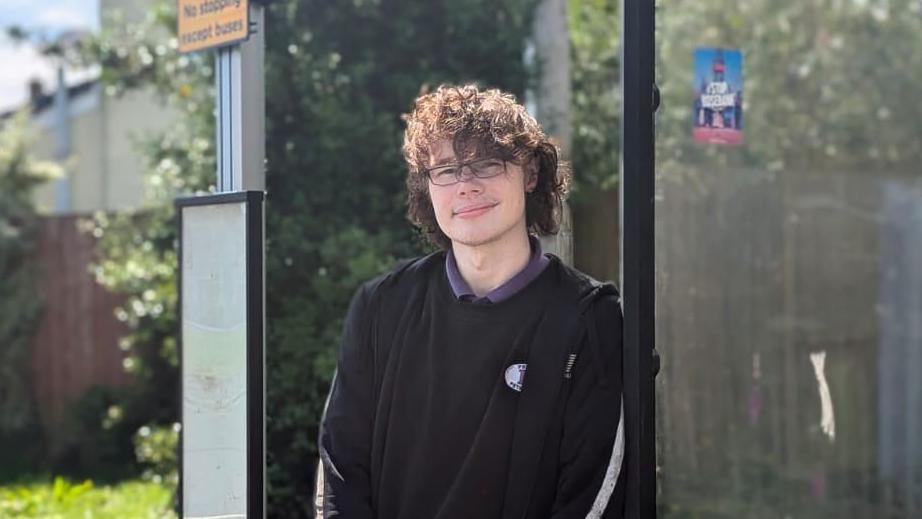Your Voice, Your Vote: 'Bus services must improve'

Brandon Fleet, 22, from Bedlington, Northumberland, says he is fed up of unreliable bus services
- Published
In the run-up to the general election, the BBC is looking at the issues that matter the most to you, as part of Your Voice, Your Vote.
Brandon Fleet, 22, from Bedlington, Northumberland, told us he is so fed up with local buses running late or "not turning up", he has to walk to work to avoid having his pay docked.
"I need that money and I can't afford to lose those minutes," he said.
He wants to know what the future government will do to improve local transport for local people.
Brandon says the bus he uses - which runs twice an hour - is often late or at times has been cancelled.
"It's going to be delayed by 10 to 15 minutes, not just by a couple of minutes," he said.
"I should be able to get to work easily. When you are in multiple days back-to-back, and walking back and forth, it's just very tiring."
He does not drive, and although fit enough to walk half an hour to his job at a garage in Bebside, near Blyth, it poses a problem when walking home in the dark. He worries about others.
"They are going to have to go to the extra effort to get a taxi or a lift from a work colleague," he said.
He wants to see more frequent buses and "a more reliable network" where buses are readily available.
"I think I would support publicly-owned buses or something that gets people involved with how buses are set and run," he added.
Brandon has called on the future government to invest more money into local transport.
"Ultimately, it's local people who are relying on it and they need that support there for them."
This summer, a train service is being introduced between Bedlington and Blyth Bebside, as part of the newly-opened Northumberland Line, external.
Arriva North East, which operates Brandon's bus route, blamed roadworks.
"Clearly, that situation is out of our control, but our bus drivers suffer the same problems as any other road user in the area," a spokesperson added.
It said it has been working with the council and "feeding back" its concerns.
"Like all bus operators, we have suffered a well-documented shortage of drivers post-pandemic, however we are pleased to say that as of last week, we’ve a further 38 new recruits in the pipeline, plus 10 agency staff supporting the current shortfall until these new recruits have passed their tests."
How the parties plan to tackle the issue:
Labour says it would lift the current ban on municipal ownership - which stops local authorities from setting up bus companies - and give local leaders more control over bus routes and schedules, as well as the power to create integrated transport systems for more "seamless journeys".
The Conservatives say they would use the savings from HS2 to transform local transport. They would give smaller cities, towns and rural areas in the North and the Midlands £4.7bn to spend on transport priorities, as well as another £1bn for new bus routes.
The Liberal Democrats say they would support rural bus services and encourage alternatives where that was not possible, like on-demand services. They also want to give local authorities the power to franchise services, so bus routes can be restored or new ones can be added where there is local need.
The Greens would push for local authority control over bus services and want to ensure buses go to every village in rural areas. They have said they would increase public subsidies for rail and bus travel to £10bn by the end of the next parliament, to make public transport more reliable and frequent.
Reform UK would accelerate transport infrastructure focus on our coastal regions, including the North. It would improve existing rail and road links, and called integrated services "critical".
Follow BBC North East on X (formerly Twitter), external, Facebook, external and Instagram, external. Send your story ideas to northeastandcumbria@bbc.co.uk.
What really matters to you in this general election? What is the one issue that will influence your vote? Click the button below to submit your idea, and it could be featured on the BBC.
Your Voice, Your Vote: 'Support our unpaid carers'
- Published14 June 2024
'People don't bother voting - nothing will change'
- Published20 June 2024
'We're caught between two countries and forgotten'
- Published17 June 2024


